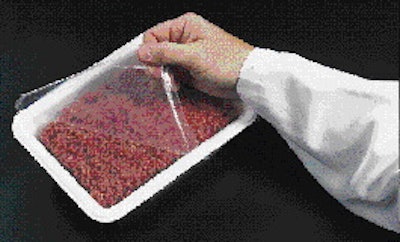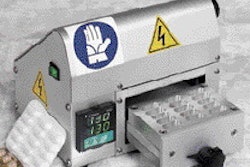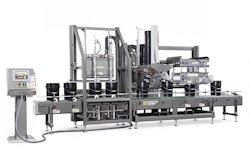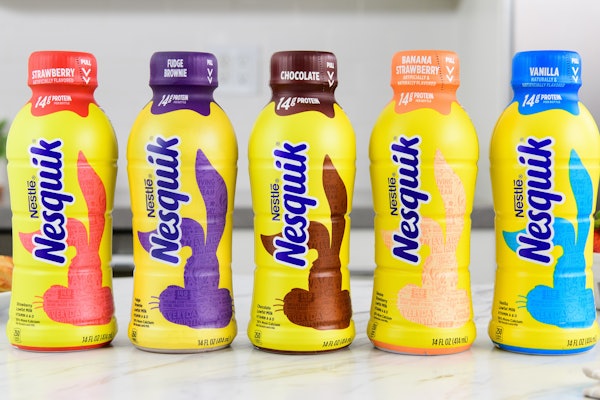The FDA issued an advanced notice of proposed rulemaking (ANPR) last February and then even extended the comment deadline two months, to mid-July, after consumer groups pleaded for additional time to bury the FDA in even more admonishing mail. More than 2ꯠ letters had already reached the FDA by early June, so it seemed unlikely that additional firepower was needed. In addition, the language of the ANPR indicates the FDA is none too enthusiastic about letting processors use a more consumer-friendly disclosure statement on irradiated foods. Certain consumer "watchdog" groups feel the same way. For example, Jeffrey Reinhardt, founder of People For Pure Foods, Grand Terrace, CA, finds terms such as "cold pasteurization" and "electron pasteurization" an "artful dodge." His group represents health food stores, alternative farmers and consumers. "Those terms do not use simple language that people would understand." More importantly, Reinhardt disagrees with the FDA that irradiation of red meat and other foods is safe. "We feel, as a matter of long record, that there are a huge number of problems treating food with irradiation." That is why Reinhardt believes the current disclosure should stay as is. Compounding the myth Food companies, on the other hand, believe irradiation is safe. The current disclosure misleads consumers "by suggesting a government-directed caution or warning statement," says Regina Hildwine, director of food labeling and standards for the National Food Processors Assn. (NFPA). "The FDA has acknowledged that many consumers believe irradiated foods are radioactive or otherwise unsafe. The disclosure requirement plays to and implicitly supports the public misapprehension about the safety of irradiated foods." The extent of that misapprehension is obvious given the scarcity of pork, poultry and other food products that use irradiation, even though it is perfectly legal at low levels. But the FDA approval of ionizing radiation on red meat in December 1997 opened up a huge potential new market for irradiation. Moreover, recent headlines about listeria contamination of food have emboldened companies such as Iowa Beef Packers, Inc. (IBP), Dakota Dunes, SD, to consider using irradiation for ground beef, despite the current labeling requirements. All that needs to happen now is for the Food Safety and Inspection Service (FSIS), part of the U.S. Department of Agriculture, to finalize its rule, which was necessitated by the FDA rule of December 1997. While some manufacturers may go ahead with irradiation of fresh meat without label changes, other processors are hungry for an easing of the disclosure requirement. They get virtually no encouragement from FDA's advance notice. In it, the agency declares that it's unaware of any "consensus regarding specific changes in the labeling of irradiated food that would best accomplish the intent of the conferees." The conferees are members of Congress who ordered the FDA to reassess labeling. The consensus also needs to include other agency regulations regarding labeling. New irradiation facility In anticipation, a number of companies such as IBP have made commitments to use the irradiation facility being built in Sioux City, IA, by Titan Corp. (Dublin, CA), which opens at the end of 1999. Dean Danilson, vice president of technical services at IBP, says being able to put "Electron Pasteurization" or "Cold Pasteurization" on IBP product labels "will be beneficial from a marketing standpoint, especially when consumers understand the technology and safety of the electron-beam systems." Although a less-frightening disclosure statement would be an asset, Danilson also emphasizes the need for the FDA to approve adequate packaging for irradiated beef. At a minimum, IBP and other meat processors would like to be able to use packaging for meats irradiated by electron-beam that the FDA has already approved for gamma irradiation. What would be even better, he says, is fast FDA approval of oxygen-barrier-type films for e-beam irradiation. Congress is sympathetic to the notion that consumer fears about irradiated food are unreasonable. That is why legislators insisted on language in the "conference report" accompanying the 1997 FDA Modernization Act (FDAMA) urging the FDA to institute a rulemaking on irradiation disclosure. This rulemaking should be aimed at determining whether the "nomenclature" required in the current disclosure statement needed changing, and whether the disclosure statement ought to be eliminated at some future date. On the same page? That rulemaking was supposed to be finished within 12 months, but the FDA dragged its feet. Fifteen months after FDAMA passed, the FDA finally came out with the ANPR, which is the first step in the rulemaking process. "That is not exactly a cooperative attitude, is it?" questions Hildwine of the NFPA. Nor was Hildwine pleased with the language in the ANPR. "It goes beyond saying, 'We have made up our minds.' The FDA seems to be questioning the intent of Congress," Hildwine charges. Bill Trotter, the FDA official in charge of the rulemaking, says he does not see it Hildwine's way. "I read that language to say the FDA has not made up its mind," he states. The FSIS proposed rule of February, in its section on labeling, both parallels and diverges from the FDA ANPR. The FSIS, just like the FDA, currently requires the radura logo and a "Treated by (or with) Irradiation" disclosure statement. But in its proposed rule, the FSIS appears to be much more sympathetic to the requests of industry by opening up the possibility that companies could use supplementary label statements such as "Free of E.coli 0157:H7." Revisit disclosure? But the FSIS giveth and then taketh away. Because on the negative side, the proposed FSIS rule would require that the disclosure statement "appear as a qualifier contiguous to the product name." That means it would be placed on the principal display panel. The FDA requirement is much narrower. It says only that the statement must be "conspicuous." Daniel Englejohn, director of the regulation development and analysis division at the FSIS, says his agency is making a "tremendous effort to be as consistent with FDA as possible on this issue. The language in our proposed rule will undergo further assessment." Some food groups would like to see the FDA (and FSIS) drop the radura logo/disclosure statement requirement entirely. The Grocery Manufacturers Assn. says that any irradiation disclosure statement is in essence illegal because the Food, Drug and Cosmetic Act does not state that food processing techniques--as distinguished from ingredients--must be listed on food labels. FDA at odds with FDA? In fact, forcing companies to put an irradiation disclosure on the label conflicts even with previous FDA decisions. For example, when the FDA approved farm use of the bovine growth hormone, rBST, to promote production of milk, the FDA explicitly rejected a label disclosure because the agency argued there was "no significant difference" between milk from treated and untreated cows. Maybe more to the point, the FDA approved pulsed-light technology to control microorganisms on the surface of foods in August 1996. Yet there is no requirement that foods be labeled to disclose the use of pulsed light. In the end, of course, Congress may have to intercede, again, to force the FDA to approve more consumer-friendly irradiation labels. If Congress becomes involved, what is interesting is that normally only Republicans would be interested in stiffening the FDA's resolve. They would typically be "pro-irradiation," and Democrats, considered more sympathetic to consumer groups, would be "anti." However, there are numerous farm-state Democrats who are "pro-irradiation," and for obvious reasons. Take Sen. Tom Harkin (D-IA), whose state will be home to the new Titan irradiation plant. He wrote to the FDA in 1998, saying that its current disclosure requirement "fosters baseless fears." More recently, on June 15, he restated that position during a speech to a food safety conference in Washington, D.C. Harkin happens to be the ranking Democrat on the Senate Agriculture Committee and a member of the Senate Appropriations subcommittee charged with approving the FDA's annual budget. So even though his party is in the minority in the Senate, he is still in a position, when it comes to food and beef labeling, to bring home the bacon.






















